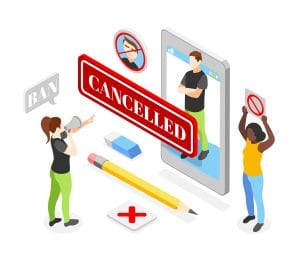This post has two parts: The Big Picture, and then Application.
I’m a slow learner. I finally had an epiphany about what specifically bothers me so much about DEI—Diversity, Equity and Inclusion.
 I’m a huge fan of Diversity. It’s one of our nation’s greatest strengths, and we all benefit from interactions with diverse people-types, backgrounds, characters and arguments.
I’m a huge fan of Diversity. It’s one of our nation’s greatest strengths, and we all benefit from interactions with diverse people-types, backgrounds, characters and arguments.
The main reason I like Diversity is because we don’t create it—God does. From the color of our skin and our gender to our physical abilities and our other skills, He has made each of us in His own image, and we are all equal in His eyes. We are brothers and sisters of the same Father. One family. All to be equally accepted and respected because of by Whom we were created. And, by the way, He alone is also the Grantor of our “inalienable rights.”
And we must also ensure that everyone in our diverse nation is given the equal opportunity to excel and to use these God-given talents to better both themselves and those around them (see below).
But Equity and Inclusion are different. Those words imply that someone needs to put their thumb on the scale to bring about a different outcome than might otherwise occur, based solely on those God-given, unique personal characteristics—not due to some illness, economic deprivation, or mistreatment.
DEI adherents believe that Equity and Inclusion require an external force to fix our natural state. Under this reasoning, some of us come out of the womb as oppressors, and others as victims, and the victims need to be saved by others who will look out for them in a special way. We are no longer all created as equals—instead we are placed into groups by our personal characteristics and then labeled on some arbitrary scale defined by all-knowing experts.
womb as oppressors, and others as victims, and the victims need to be saved by others who will look out for them in a special way. We are no longer all created as equals—instead we are placed into groups by our personal characteristics and then labeled on some arbitrary scale defined by all-knowing experts.
Some groups are then singled out for special attention by someone—educators, counselors, employers, the government—to be moved up or down that arbitrary scale, to ensure not equal opportunity but the outcome that one day we will all arrive at the ideal of true equity and inclusion, whatever that is.
But two other E & I words, Excellence and Integrity, are about individual behavior and choices. Here are definitions from The Content Authority:
“Excellence means the quality of being outstanding or extremely good. It is the relentless pursuit of perfection, striving to be the best version of oneself. It is about setting high standards and achieving them through hard work and dedication.
“Integrity means the quality of being honest and having strong moral principles. It is the adherence to a code of ethics, even when no one is watching. It is about doing the right thing, even when it is difficult.”
That DEI—Diversity, Excellence and Integrity—I can really get behind, because it’s about personal behavior, to grow and to use our diverse, purposed God-given gifts and talents to be the best we can be, as well as to have the greatest positive impact on everyone and on everything around us.
I’m all for educators, counselors, employers and maybe even the government instructing individuals on how to seek Excellence in everything, and to act with Integrity at all times.
Let’s call it DEI+.
That is the DEI+ on which our country was founded, and if we turn back to it, we will again prosper, united by how we behave toward and respect each other as co-equals from before birth, not divided by a category or group someone puts us in.
If DEI+ makes sense, then let’s consider a small application, using Excellence as the example.
 We might ask, whatever happened to Excellence being the assumed standard which we all want to attain in everything that we do and say? Both as individuals and as organizations.
We might ask, whatever happened to Excellence being the assumed standard which we all want to attain in everything that we do and say? Both as individuals and as organizations.
Excellence still exists, but it is increasingly hard to find. From manufacturing aircraft at Boeing to the simplest customer service interaction, Excellence is no longer the assumed standard.
I believe there are at least two reasons.
1. Accepting less than the best in the name of cost cutting, offshoring, efficiency, downsizing or some other maxim which is deemed more important than producing the best.
2. Purposefully lowering the standard of measurement so that some group will not feel badly about being unable to meet the old, higher standard. This is one of the terrible results of the old DEI.
In the first category, taken from my personal world, try building anything today which requires plans, reviews, approvals, inspections or signoffs. In the name of efficiency and cost cutting, most of the positions needed to perform those functions have been eliminated, and the experienced people let go, creating very expensive delays and needlessly driving up the cost of all types of construction.
An example of the second is the School Board in one of our nation’s most famous elite college towns. They eliminated even offering Advanced Mathematics in their city’s high schools, rather than have any student feel badly because he or she could not do the work, and therefore might not feel “Included.” The result will be less engineers and scientists in our country, caused by ignoring the truth that we all have different God-given gifts and talents.
But this week I had the opposite experience. I was flying home from Chicago and wound up on the M concourse at O’Hare Airport’s Terminal 5. It was dinner time, and I was hungry. Down at the far end of the concourse, where there are only a few gates and not that many people, I found The Hampton Social, a tiny restaurant consisting of a bar with about ten seats, plus about twelve more seats for diners. Named for a famous restaurant downtown, this one was not exactly a premier location with a steady following. I sat at the bar and ordered a Smashburger, not expecting much.
I then watched the youngish, Hispanic bartender/waiter do his job with incredible Excellence. He precisely mixed complicated drinks and served them with clear pride. He took time to explain to a lady about each of her possible choices for how he could make a margarita for her, with the pros and cons of each, then made what she said was the best she’d ever had.
All the while he took and served many food orders, regularly checked on each patron, and generally ran a tight and efficient operation for his customers. And smiled a lot.
When I finally had to leave for my flight—the Smashburger was great—I felt compelled to thank him and to comment on his Excellence. Others at the bar joined in. He beamed and thanked us.
That experience led me to resolve to recognize and to praise Excellence whenever I experience it.
I’ve written a lot in these pages about weaving Judeo-Christian values back into the tapestry of our society, and one clear and easy way to do so is simply to call out and to celebrate Excellence wherever we find it. I hope to make it a strong habit, countering firsthand the many forces pulling for mediocrity.
So, let’s call out Excellence—and Integrity—whenever we encounter them—and hopefully our words will encourage even more of both.
And pass on the shift to the better DEI+


Comments